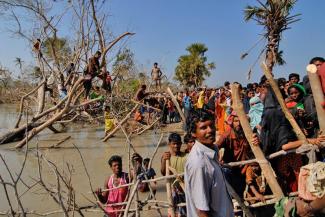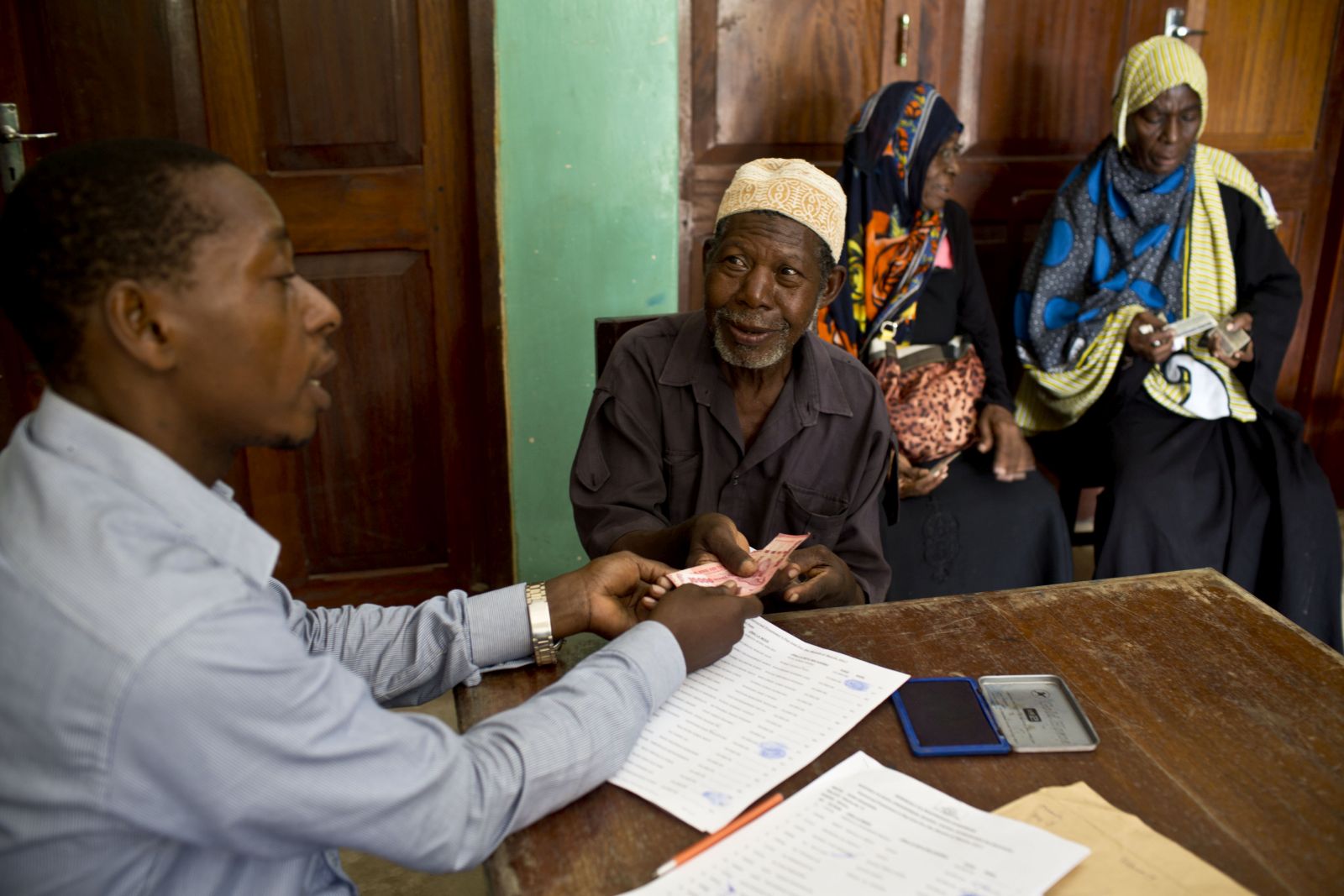Safety nets
An underresearched topic

The only book that comes close is Heinz Lampert’s and Jörg Althammer’s “Lehrbuch der Sozialpolitik” (Textbook of Social Policy), which is now in its 9th edition (2014). The 1st edition of 1985 – originally written by Heinz Lampert alone – defined social policy as a fundamental element of the economic and social order of the western industrialised world.
The book swiftly became a standard reference. However, in terms of both structure and conceptual approach, it has not been significantly updated in any subsequent edition. To the extent that the book is dealing with German issues, this shortcoming is forgivable. But in the international debate, there has been a paradigm shift that the book fails to reflect. For example, illness, old age and unemployment are no longer perceived as the only risks that need to be managed. On the contrary, it is recognised that people who work in the informal sector, including in agriculture, and who make up the majority of people in developing countries, actually face greater threats from drought, flooding, price shocks or earthquakes. They may thus need radically different social-protection systems than the majority of people in industrialised countries require. Lampert and Althammer, however, consider only European models of social protection and completely ignore successful, innovative approaches taken in Brazil, Lesotho, Namibia or India.
Conventional and innovative approaches
For a long time, the international debate was conducted largely from a European perspective. This was partly because the issue was mainly addressed by the International Labour Organization (ILO), which is primarily interested in the formal sector and government social policy. It was helpful that the World Bank took up the issue in a discussion paper in 2000 (Holzmann and Jørgensen, 2000), taking a much broader view than the ILO. The World Bank expanded the definition of social-protection schemes to encompass all public interventions that help households manage the risks they face in life – illness, longevity or unemployment but also hailstorms, volcanic eruptions or civil war.
Especially in developing countries, social protection systems should provide basic security, guaranteeing a minimum standard of life even to the poorest of the poor. The World Bank does not pay quite enough attention to this fact. However, it impressively underlines that the very existence of social-protection systems can prompt positive changes in behaviour – even on the part of people who receive no welfare benefits at all but would profit from them if their personal circumstances were to change for the worse. The point is that people become more willing to invest in equipment or education if they know that they enjoy protection from at least the worst risks. Accordingly, they become more likely to lift themselves out of poverty. The World Bank (2001) aptly called its first strategy for the social protection sector: “From safety net to springboard”.
A group of researchers close to the UK Department for International Development (DFID) subsequently attempted to bridge the gap between the conventional ILO understanding of social protection and the new World Bank approach. One of the group’s key publications is “Social protection for the poor and poorest: Concepts, policies and politics” (Barrientos and Hulme, 2008). The first part of the book compares three philosophies of social protection. These approaches are called “risk-based”, “rights-based” and “needs-based”. They bear a close resemblance to what is known in German literature as the “Versicherungs-”, the “Versorgungs-” and the “Fürsorgekonzept” (insurance, provisioning and relief concept). The authors then go on to look at different social systems in developing and industrialising countries, including the conditional cash-transfer programmes operating in Latin America, the unconditional transfer programme in Zambia and an employment-creation programme in Ethiopia.
Sadly, the authors neither reveal the selection criteria that guided the choice of their case studies, nor do they draw broader conclusions. Furthermore, the book is too Britain-centred, as publications on development from the UK sometimes are. The authors are evidently so blinkered by the social-protection system of the UK (corresponding to the “Beveridge model” of relief) that their focus is mainly confined to tax-financed systems. They ignore the government-run social-insurance models, which are funded with citizens’ personal contributions rather than from the national budget, as well as non-state protection systems.
Reform concepts
The pros and cons of different strategies for improving social protection in the informal sector are tackled in a German-language book that I published myself in 2009. However, it does not pay much attention to the political challenges of improving social protection in the informal sector and reforming social policy in developing countries generally. Improvements could be delivered by social insurance systems, social transfer systems, micro-insurance schemes or tax-financed health-care systems.
Which is precisely the aspect of social reform addressed by the excellent anthology “Social protection in developing countries: Reforming systems” (Bender et al., 2013). The book starts by discussing what social-protection systems are meant to achieve and how they should be organised. Contributors then show how reforms depend:
- on a country’s political and legal system,
- on historical factors such as a long-existing social protection system and
- on public attitudes in developing countries towards meritocracy and distributive justice.
The book includes convincing empirical analyses of the specific challenges for social-protection reform in Indonesia, Vietnam, Southern Asia and the Arab world. Finally, it discusses the key issue of what external actors like the World Bank, UNICEF, ILO, international NGOs and bilateral donors play – and to what extent that role is proving beneficial in developing countries.
A good overview of the social protection systems that exist in various parts of the world is found in the World Social Protection Report 2014-2015 published by the ILO. Describing the coverage, benefits, strengths and weaknesses of the different systems, it also features a particularly useful annexe of detailed statistical tables.
A very different aspect is illuminated by the anthology “Vulnerability in developing countries” (Naudé et al, 2009). This book assesses why social protection systems are needed in the first place and why people in developing countries are so vulnerable to risks. The publication opens with a research paper on the definition of vulnerability and ways in which it can be measured. That is followed by a number of papers examining the connections between vulnerability, poverty, wealth, health, access to credit and social capital. The book ends with a discussion of the significance of specific risks for people in developing countries, such as food shortage, natural disasters and international financial crises. This multi-faceted book makes one thing clear: just how important it is never to lose sight of the specific circumstances and challenges of the people that social protection systems are supposed to help.
Markus Loewe is a senior researcher at the German Development Institute / Deutsches Institut für Entwicklungspolitik (DIE). markus.loewe@die-gdi.de














